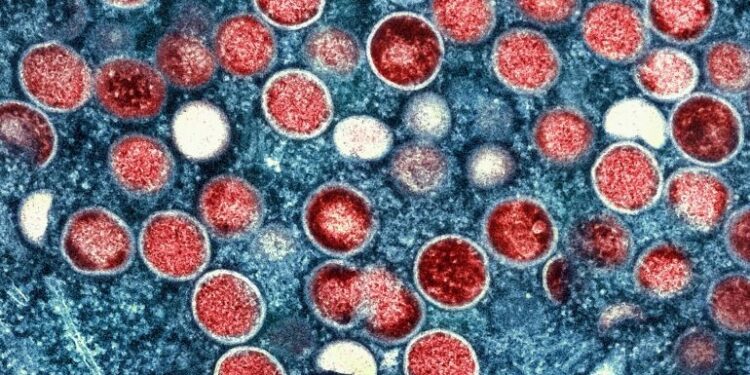KIGALI, Rwanda
Limited access to vaccines and funding gaps are the challenges hampering the fight against mpox in Africa, an official of the World Health Organization (WHO) said Thursday, as the continent marked a year since mpox was declared a public health emergency of international concern.
Patrick Otim, program manager of emergency response at the WHO regional office for Africa, also cited inadequate access to care, competing emergencies, and stigma, which keep people from seeking care.
He said while African countries have scaled up response measures and made progress to curb the spread of the virus, mpox remains a “serious public health challenge” on the continent.
In the past year, 28 countries have been affected, with over 174,000 suspected and nearly 50,000 confirmed cases, according to the latest WHO data. The virus has claimed about 240 lives.
“Our priorities for the next six months are to expand community-based surveillance in high-risk areas, continue to procure and distribute essential supplies to hotspots, support the integration of mpox response into other health programs for sustainability, support targeted vaccination, and advocate for more funding for vaccine deployment,” said Otim, speaking at a virtual press conference.
On a positive note, according to the WHO, the weekly number of confirmed cases declined by 34.5% compared with the preceding six weeks.
Over 3 million vaccine doses, almost half of the target, have been delivered; more than 951,000 doses have been administered; and around 900,000 people have been vaccinated with at least one dose, the WHO data showed.
Ivory Coast has brought its outbreak under control after 42 days with no new cases, while Angola, Gabon, Mauritius, and Zimbabwe have also gone more than 90 days without any new confirmed cases.
Otim stated that 13 of the 22 countries with active transmission have vaccine deployment plans, and eight are vaccinating high-risk groups and contacts.
An individual infected with mpox exhibits symptoms within two to 19 days after exposure. A rash, fever, sore throat, headache, muscle aches, back pain, fatigue, and swollen lymph nodes are among the common symptoms.






